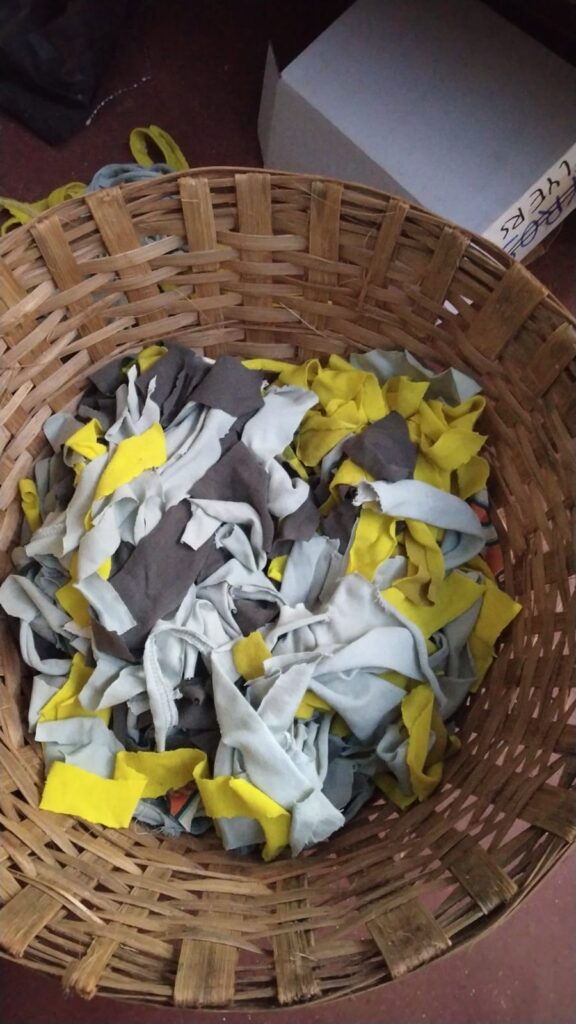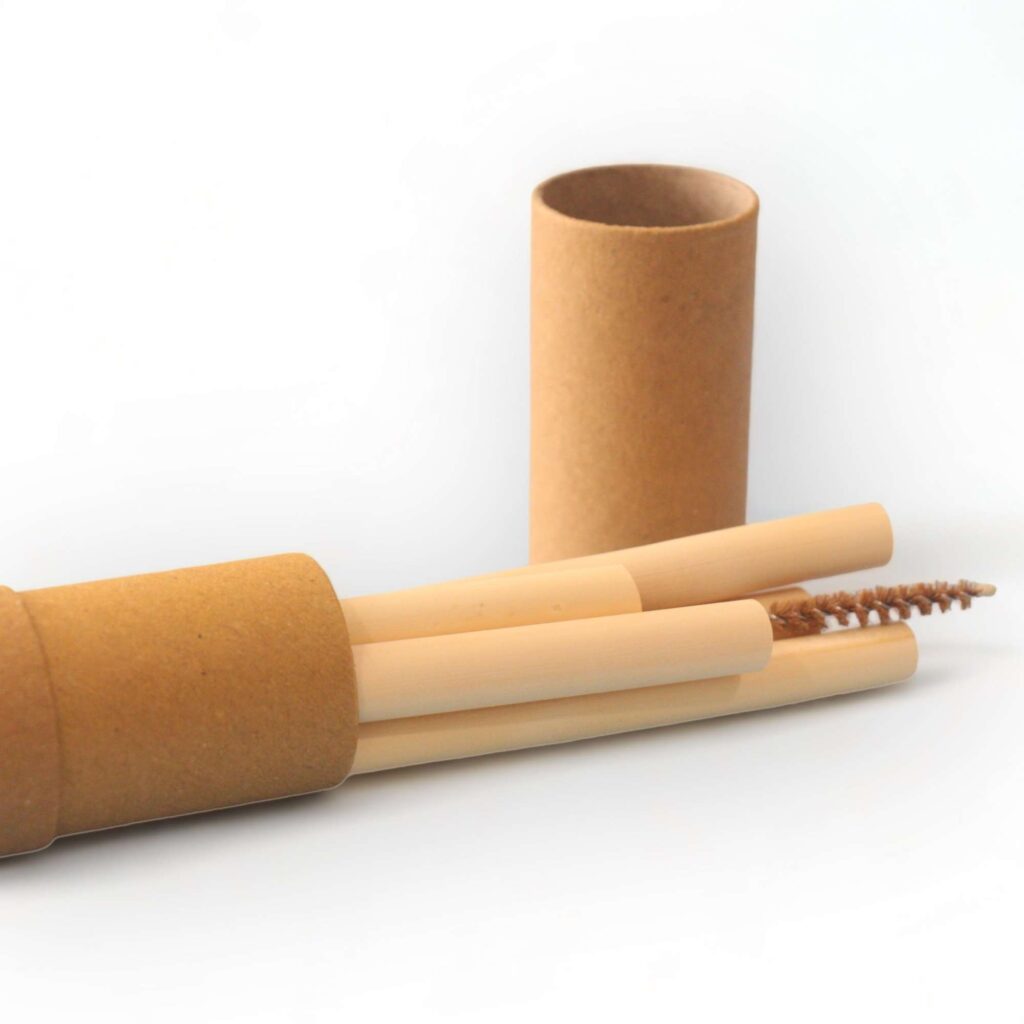“There was a dye plant next to my house in Erode,” starts Shanmugavel, founder of Fabrula, a young start up that is exploring ways of recycling fabric into useful products. “The plant leached chemical colours into the water, and I would always wonder how we as a community tolerated this.” From pondering about such instances, to participating in science projects on air, water, and soil conservation in elementary school, Shanmugavel developed a deep understanding and appreciation of the Earth’s ecosystem and was acutely aware of how we humans were participating in its destruction.
He went on to study graphic design in college and then gained a master’s in journalism, following which he joined the IT industry to work in user experience, graphic design, and digital marketing. “But my heart was not in it,” he says. “I was constantly thinking of startup ideas that could solve environmental challenges—from agricultural ideas to garment weaving. Nothing really worked, but I did not give up.”
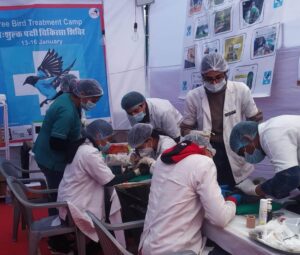
The young Erode native began voluntourism, offering graphic design services in exchange for food and stay, and continued to explore ideas. One such voluntourism brought him to a birds’ rescue camp in Rajasthan. He volunteered as a photographer for the Kites festival.
“The season of Makar Sankranthi is full of joy and colours as kites soar in the skies, held by “manja” twine,” he recalls.
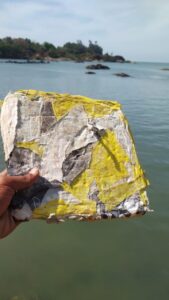
“Manja” is a big ball of fine pure cotton thread that is coated with a mixture of rice glue, tree gums and similar natural ingredients – and an abrasive: finely powdered glass. In some places individuals make their own version of “manja” and keep the process a secret. Chemical “manja” or “Chinese manja” is a relatively recent introduction. It is based on non-biodegradable synthetic fibres. This makes it harder to break and makes the string more dangerous to birds and people who get in its way.
The day began cold and bright, and as the hours wore on, a few people staggered in, bringing one or two birds that were injured. By evening, he was stunned at seeing over a thousand (yes, a thousand!) birds that were horribly injured, and needed serious care. “If a ball of thread can cause so much destruction, I was convinced the same thread can be repurposed to help life,” he recounts.
Shanmugavel moved on from Rajasthan to Goa, where he volunteered with hospitality and entertainment businesses, while also exploring work at a leather reclamation process. “The project was to create a patchwork on an existing leather base to refurbish a bed,” recounts the entrepreneur. “This involved resurfacing an existing leather base with new leather, and ensure the layers don’t part. The glue and the technique influenced my thinking.”
If we can refurbish leather, then textiles can’t be far behind, thought Shanmugavel. From thereon, it was continuous experimentation—how do fabrics work together, how can we glue different material and create a unified product, how do these products serve diverse needs, with the overarching question being “What does it take to replace existing ideas with new product ideas from fabric recycling?”
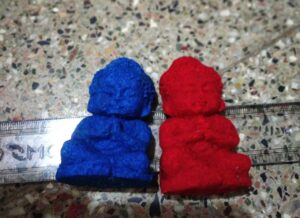
Cracking the formula for the resin held the key to success. A dozen experiments later Shanmugavel was quite thrilled with the final product. In his own words in Tamil, “Athu semmaiya velai senjathu, oru periya confidence boost koduthathu.” (It worked very well, giving a big boost to my confidence!)
Even as Shanmugavel was cracking the code on resins, J.Aakash a Fashionpreneur as he calls himself, was also getting interested in sustainability, the circle economy and how textiles could be the starting point for new projects. As a serial entrepreneur he had already worked to expand a production plant in Dubai and on returning to India had launched Boutee Kadai, an online teeshirt retail brand, before eventually creating an accounting service offering, once again for online commerce.
“We are focused on the post-production textile like used clothes and textile material customers throw away. We are understanding the market, the supply chain challenges, the segregation and recycling processes,” they explain. Aakash joined as the co-founder at Fabrula a few weeks ago, after collaborating with Shanmugavel for nearly 8 months.
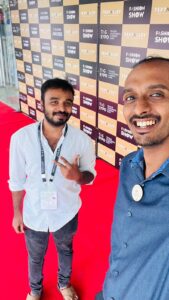
Today, Fabrula has successfully produced, extensively tested, and is currently scaling a fa-brick (condensed fabric) that can find many uses—from sound-proofing walls to replacing gypsum board to forming the base of heavy furniture that traditionally rely on wood and steel. With grants from research arms and the government, the duo is exploring ways to scale their company.
In his own words, Shanmugavel declares his investment intent. “We seek investors who appreciate the patient and intentional nature of our production cycle. Like the steadfast and slow journey of a tree as it bears fruit, our approach is one of measured growth and careful cultivation. Unlike other startups, we prioritise sustainability over rapid scalability. We’re in it for the long haul, cultivating a rich harvest that takes time and care. Our investors will reap the rewards of our mindful approach, but with patience comes great rewards. And that’s a truth that is as natural as the sun rising in the east.”

